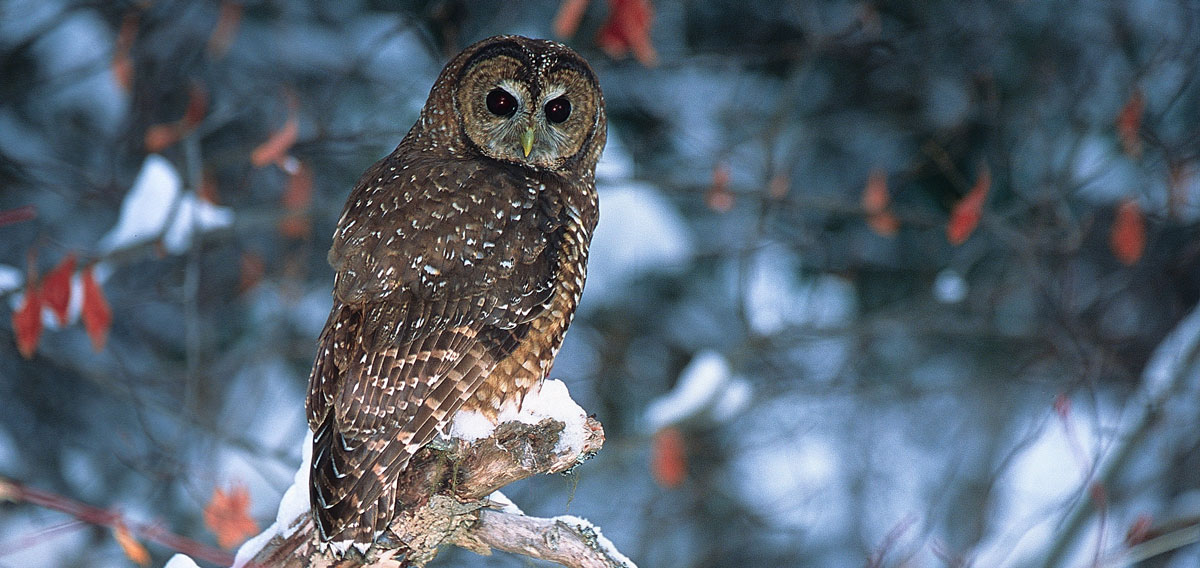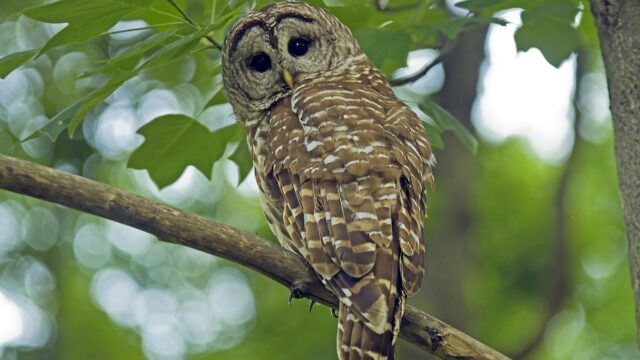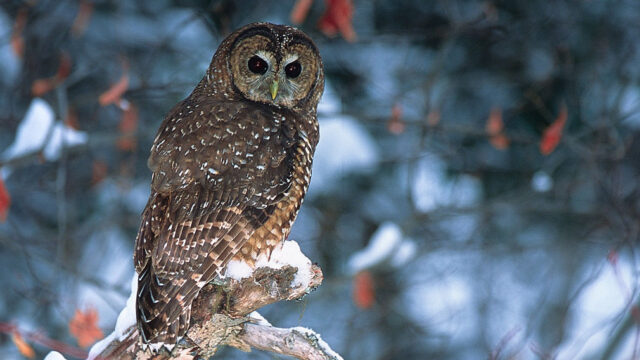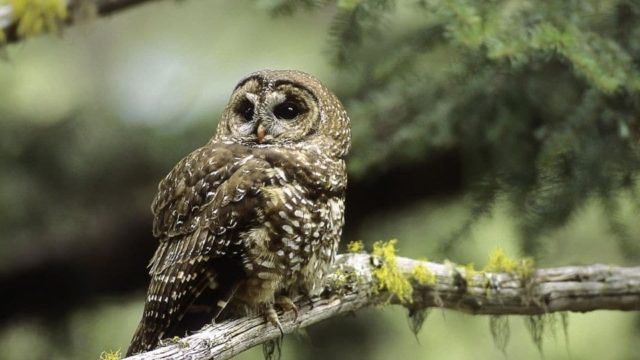Environmental groups critical of decision given active logging approvals by B.C. government puts spotted owl at risk of extinction in Canada
səl̓ílwətaʔɬ (Tsleil-Waututh), xʷməθkwəy̓əm (Musqueam) and Skwxwú7mesh (Squamish) Territories (Vancouver, B.C.) – The federal cabinet has rejected an emergency order to save the spotted owl’s habitat from imminent logging, on the eve of a court hearing. Federal Minister of Environment and Climate Change Steven Guilbeault recommended cabinet make an emergency order, however cabinet refused.
“How is the fact there is only one wild-born spotted owl left in Canada not the definition of an emergency?” said Wilderness Committee Protected Areas Campaigner Joe Foy. “Minister Guilbeault found in January there was an imminent threat to the owl’s recovery due to the B.C. government’s logging authorizations, and yet B.C. has continued unabated logging of the owl’s home throughout the spring and summer. How does the federal cabinet just say ‘no problem’ to that?”
Wilderness Committee, represented by environmental law charity Ecojustice, is heading to court next Wednesday to ask it to determine if the minister’s eight-month delay in recommending this emergency order to cabinet is permitted under the federal Species at Risk law.
In October 2022, the Wilderness Committee petitioned Guilbeault to recommend to cabinet to issue an emergency order to protect the spotted owl. An emergency order allows Ottawa to intervene when there are imminent threats to the survival or recovery of a species at risk.
In January, this petition led to Guilbeault determining that 2,500 hectares of spotted owl habitat was at risk of being logged within the year, which was an imminent threat to the species’ recovery. However, despite the urgency of the situation, the minister failed to make an emergency order recommendation to cabinet for eight months. In June, Wilderness Committee launched a court case challenging the minister’s delay in making the recommendation and asking the court to force the minister to make the recommendation. Now just days prior to the court date, the recommendation has been made and rejected.
“The minister has been required by law since January to recommend an emergency order,” said Ecojustice lawyer Andhra Azevedo. “Instead, the minister spent months ‘engaging’ with B.C., while B.C. made no new commitments to protect habitat and instead continued to approve logging. To state the obvious, we have emergency orders under the Species at Risk Act to respond to emergencies — what we’ve seen by the minister and now cabinet is nowhere close to an emergency response.”
Only one known wild-born owl still lives in the forest, located in the Fraser Canyon region of B.C. Two captive-bred owls released last fall were later found dead, while another was found injured and brought back to captivity. Two more captive-bred owls were released to the wild earlier this year. Throughout the summer months, the Wilderness Committee documented sites where logging has continued within spotted owl habitat necessary for the species recovery. Now that cabinet has rejected an emergency order, continued logging is likely to doom spotted owl recovery in Canada unless the provincial government takes immediate action to stop logging of spotted owl habitat.
“Canada got it wrong. They followed the cue of the B.C. government and yet it doesn’t have a credible plan when it comes to spotted owl nor proper consultation with First Nations about what happens in the owl’s habitat,” said Spô’zêm First Nation Chief James Hobart. “The province’s own logging agency, BC Timber Sales, continues to tell companies it’s business as usual and they can cut old-growth even in areas targeted for deferrals, that it’s up to them to decide.
B.C. has turned its back on the last spotted owl.”
Despite the owl’s tenuous hold on survival, Canadian Wildlife Service scientists have said they believe the recovery of the species is biologically and technically possible by reintroducing owls into the wild in Canada. However, the success of reintroduction depends on protecting enough of the species’ old-growth habitat to ensure that released spotted owls will survive and recover to a stable population.
“Despite scientists and the federal environment minister identifying that B.C.’s approved logging posed an imminent threat to the spotted owl, the BC NDP government wants to continue old-growth logging and they have effectively pressured the federal cabinet to allow it,” said National Campaign Director Torrance Coste for the Wilderness Committee. “If we do lose the spotted owl in Canada, responsibility will sit with Premier David Eby and B.C. ministers like George Heyman and Nathan Cullen — and the federal cabinet that went along with them.”
Next week’s hearing at the federal court is a culmination of more than 25 years of efforts by the group to save the spotted owl from extirpation in Canada. Wilderness Committee filed the first legal action of its kind under Canada’s Species at Risk Act, in 2005, demanding that the federal government intervene to protect the critically endangered bird.





